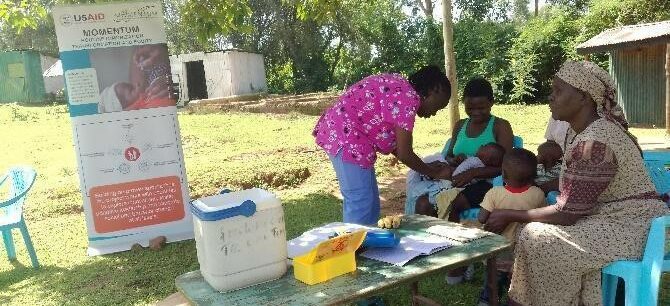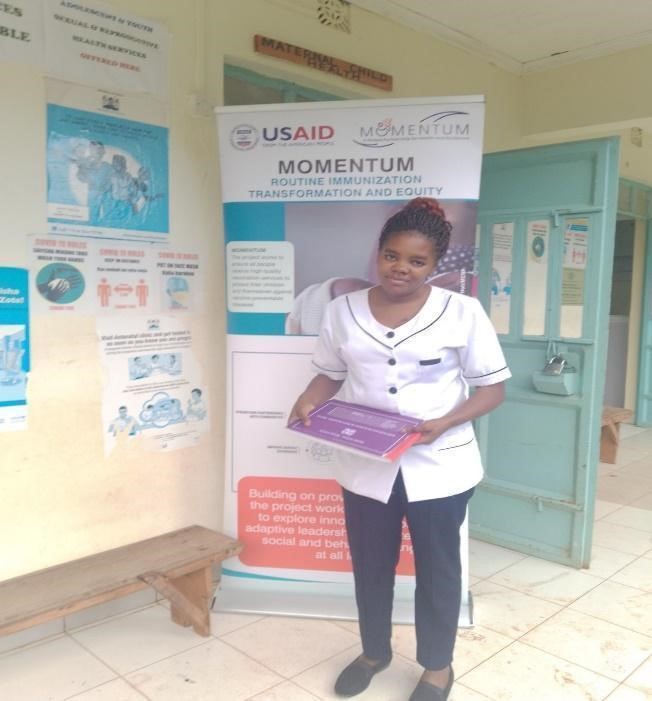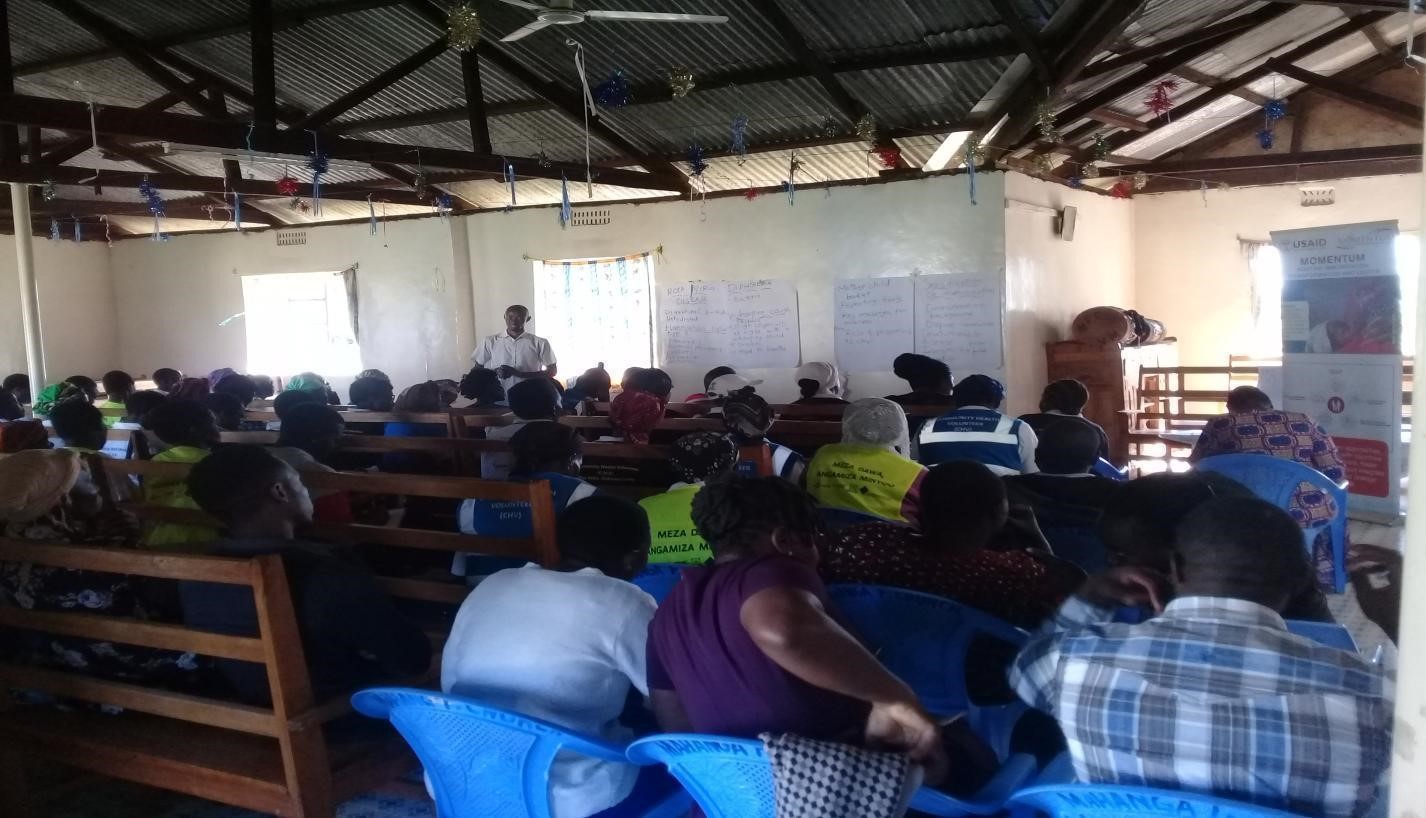Health Workers and Community Volunteers Work Together To Improve Routine Immunization Rates in Western Kenya
Published on March 6, 2023

By Vicky Maiyo, Senior Program Officer, and Denis Omondi, Program Officer, MOMENTUM Routine Immunization Transformation and Equity, Kenya
Charity Kenyani Akoyi is a registered nurse in the Maternal Child Health Department of the Luanda Town Dispensary in Vihiga County in Western Kenya. She had worked there for several years when she noticed a significant decrease in the number of fully vaccinated children. In the second half of 2021, the percentage of children in the facility’s catchment area who received the first dose of diphtheria, tetanus, and pertussis (DTP) vaccine but did not complete the series of three doses, increased from -2.1 to 20 percent.1 The percentage of children who received their second dose of the measles-containing vaccine (MCV) dropped from 11 to just 3 percent coverage.

Charity and her co-workers faced a multitude of challenges in vaccinating children in Vihiga County. For example, community leaders were not engaged in immunization efforts and the few community vaccination outreach sessions were poorly attended. Health care workers felt isolated, unappreciated, and disheartened by the facility’s low routine immunization (RI) performance.
The Luanda Town dispensary needed new strategies and activities to support accessibility to RI. The MOMENTUM Routine Immunization Transformation and Equity project, which supports health system strengthening to improve immunization and maternal and child health outcomes, collaborated with health care workers (HCWs) to address the immunization challenges in the health facility. Through its Expanded Program on Immunization (EPI) training sessions and community outreach, the project empowers HCWs and equips them with knowledge and tools to revitalize RI.
The project partnered with the county and sub-county health management teams to train Luanda community health volunteers (CHVs) to track and assess immunization status for children under five, identify zero-dose children2 in the community, and refer and follow up with parents of zero-dose and under-vaccinated children. The training increased CHVs’ understanding of immunization indicators and they were then able to work with HCWs to improve them. This collaboration also improved community mobilization during planned vaccination outreach sessions.
The project convened a four-day EPI operational-level training for health workers. Charity, who attended the training, said, “It helped me refresh my mind on technical issues around immunization, enabled me to get updates [on immunization] and enlightened me on the crucial role of other stakeholders in immunization.” After the training, she began to collaborate with schools and involve chiefs, village elders, and other community leaders in vaccination outreach planning. A result of this collaboration was in-school vaccination of 10–14-year-old girls against human papillomavirus.

MOMENTUM built health workers’ capacity for EPI micro-planning and target setting to identify and reach priority communities. An immunization micro-plan is a detailed roadmap that seeks to improve immunization coverage by analyzing the current situation, outlining the activities to address it, identifying the resources required, and monitoring the implementation of these activities. The micro-planning training helped to identify and reach under-immunized populations.
This was Charity’s first introduction to micro-planning. Charity explained, “We did not have a micro-plan to guide our work, and we did not understand how to approach certain areas of intervention….it was not enough to just report for duty and serve clients who come for services. I also needed to understand the community I serve and that there needs to be closer linkages between service providers and the community.”
Immunization microplanning, complemented by the CHV training on reaching zero-dose and under-immunized children, helped Luanda Town Dispensary staff improve immunization and health outcomes in their community. The project supported several vaccination outreach events in the priority areas that staff identified in the microplan. By June 2022, the rate of children who did not complete the three-dose DTP vaccine series decreased from 20 to 4 percent, and the rate of children who received their second dose of MCV vaccine increased from 3 to 16 percent.
“MOMENTUM came just in time to help me solve these puzzles that I have been struggling with,” said Charity.
Footnotes
- A negative dropout rate for DTP1-3 indicates that more doses of DTP3 were administered than DTP1.
- Zero-dose children are those who have not received a single dose of the vaccines that prevent diphtheria, tetanus, pertussis, and other diseases.

